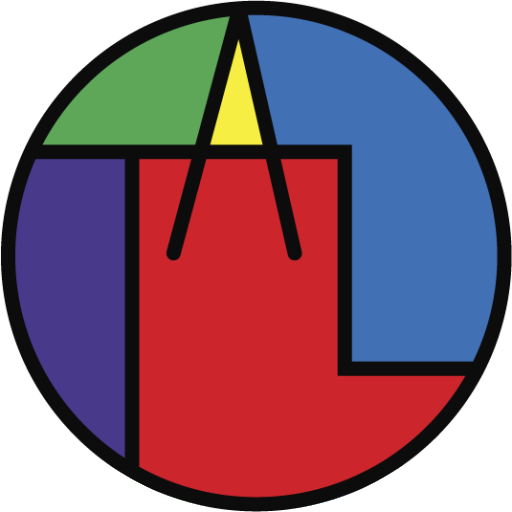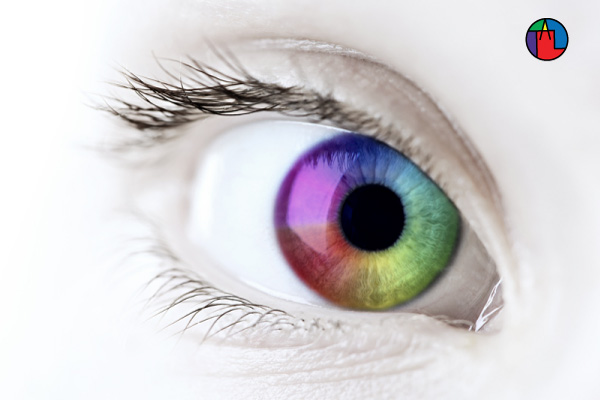A few days ago, as I sat in the waiting room while my mom was having cataract correction surgery, I started thinking about vision.
What is vision, really? Is it how well our eyes see what’s before us? Or is it something more?
Dictionary.com defines “vision” as, “The act or power of seeing with the eyes; sight.”
This particular definition brought back a personal memory from my elementary school days. When, one day, during a heated game of Wiffle ball, I suffered a temporary loss of eyesight.
If you’re not familiar with Wiffle ball, it’s like the game of baseball but is played with a plastic bat and a lightweight ball with holes that make it resemble Swiss cheese. Gloves and protective gear aren’t necessary, making it the perfect neighborhood pastime and great for an indoor gym class on a rainy day.
At one point on that particular day, I was next in line to bat, standing about three feet behind home plate. Despite my proximity to the batter, who also just happened to be the most powerful hitter in our class, I wasn’t really paying attention to the game in progress.
So it startled me when I heard a “whack” echo against the gym walls as the bat and ball connected.
I turned to watch what I thought would be the ball making contact with the far back gymnasium wall for a home run, but I saw something quite different. The ball was coming straight at me.
With the force of a grand slam, the ball traveled backwards over a much shorter distance than intended. A line drive, direct hit – stopped only by my face.
It all happened so quickly. I saw it coming, but not soon enough, which meant my eyes were open when the scratched surface of the lightweight ball made impact.
FOUL BALL!
A different four letter “F” word came to my nine-year-old mind in that moment.
I immediately felt as if my eye had exploded. Screaming in agony, I fell to the ground. Head to the floor. Tears streaming from my eyes.
“I can’t see! “I can’t see!”
As the other kids gathered around me, the gym teacher cut through the crowd to survey the damage. He asked me to take my hands off my face so he could take a look. I just kept screaming that I couldn’t see.
He then retorted (I believe in an attempt to lighten the tense mood and the fears of all my fellow freaked-out third graders), “Well, take your hands off your face and maybe you’ll be able to see.”
The kids found that funny, and everyone started to laugh.
Except me.
There was nothing funny about the searing pain I was experiencing in that moment.
An eye specialist at a clinic four hours from home would later determine that it wasn’t my hands that were inhibiting my vision after all, but rather a deep scratch on the cornea of my eye.
Just in case anybody was unable to recognize which eye had been hurt, despite the shiner I received along with my scratch, a big white patch was taped over my eye to help them figure it out.
And as if that wasn’t enough, I spent the next two weeks feeling like I had small pieces of gravel floating around the surface of my eyeball.
If you have ever felt the discomfort of having merely an eyelash in your eye, you can imagine the torture! It was all-consuming. Distracting. Unbearable. Without relief.
I was lucky, though. My injury didn’t result in permanent damage, and I still have 20/20 eyesight to this day.
However, through this experience, I realized – as did most of my classmates and a certain apologetic, pseudo comedian gym teacher – that not being able to see is no laughing matter.
Fortunately, when it comes to physical sight, there are options: glasses, contacts, drops, surgery and even the ability of our other senses to compensate for vision loss.
But what about the pain caused by the loss of a very different kind of vision?
This kind of vision has nothing to do with how well you can read a chalkboard or the pages of a book.
And it can’t be altered by a hurtling plastic ball straight to the eye socket.
Real vision is not only unlimited by space and distance, but it does not depend on the body’s eyes at all. – CIM Lesson#30
Real vision is seeing things clearly, in an entirely different way. It’s clarity of thought through a connection to the Divine, Source Energy, Universe, Mother Nature or any other connection or feeling that inspires or guides you.
We’ve all experienced it at one time or another. However brief or fleeting. However long ago.
These are moments when you just act…no questions asked. When you’re comforted by a sense of knowing. When something that previously evaded you becomes crystal clear. When you feel peace.
If you can’t see clearly, you’re not actually seeing at all. Instead, you’re perceiving – incorrectly.
Dictionary.com defines “perception” as an “act or faculty of perceiving by means of the senses or of the mind; cognition; understanding.”
It is your interpretation, however wrong that may be.
There is pain because perception is a scratch on the cornea of REAL VISION!
And so, I call them Wiffle ball perceptions:
- We avoid clarity by trying to make everything fit into a category or mold. In other words, we see what we want to see, instead of what is really there.
We ignore, avoid and make excuses because we so badly want a situation or another person to be exactly what we need or want them to be.
And then we become hurt, angry, numb or even debilitated when the reality doesn’t match our desired vision.
All the while, we’re wondering, “How did this happen?” To put it simply, we’re trying to fit a square peg into a round hole.
The development of this particular Wiffle ball perception involves denial of self, which contributes to denial of others.
- We deflect peace, in an attempt to keep ourselves safe, comfortable and accepted, by expecting far less than what we want and what is possible.
How we see the world paints our experience of it. Yet, we refuse to pick up the damn paintbrush!
Our reality is formed by what we expect to see. We officially invite that expectation to a party in our honor, whether we want it to show up or not.
This form of perception is often handed down unconsciously from generation to generation, stemming from lack of deservedness.
Some families and cultures even celebrate it as a form of humbleness or selflessness.
- We imprison ourselves in states of confusion and dissatisfaction because sometimes we’re quite simply not willing to do what is needed to either get what we really want or to avoid what we don’t.
For instance, my friend was recently suffering from an ulcer on her cornea. Her eye doctor told her it would only heal if she stopped wearing her contacts. But she wouldn’t stop wearing her contacts because, in her own words, she “needed to see.” She had work to do, places to go and people to see – no matter how impaired or uncomfortable she was.
This form of perception is rooted in fear of failure. Something about what she needed to do to get what she wanted – a healed cornea, clear sight and relief from her pain – scared her more than dealing with her discomfort and inconveniences.
So we want something, and continue to be frustrated by not having it.
I call this trap the Einstein Cycle, based on Albert Einstein’s famous quote: “The definition of crazy is doing the same thing over and over and expecting different results.
”You can not expect to feel any sort of clarity, fulfillment, peace or, ultimately, joy if you continue to say “Yes” to the things you don’t want and tell yourself “No” – or completely ignore – the things you do.
Here’s the good news. There’s a solution to all of these forms of impaired vision.
You can start to see clearly.
It might require a “surgery” of sorts. A new prescription. Or a different way of looking at things.
You might need to step back. Take a closer look. Put on your glasses. Or take out your contacts and let things heal.
All you really need is a little awareness and the willingness to make a choice.
We can choose to focus on what is outside of us, separate from us, different, the problem, which comes from a place of fear and always leads to pain, depression, confusion, anger, sorrow, hurt or conflict.
(I’m more familiar with this choice than I’d like to be).
However, we can choose to experience life through the lens of our inner voice, knowledge, passion, interconnectedness, similarities, solutions, which comes from a place of love that can only produce ease, joy, peace, acceptance, creativity, collaboration and, ultimately, clarity.
I think the choice is crystal clear. Don’t you?
Share below in the comments. Where do you want peace and clarity in your life? Can you identify your own perceptions that “make a better door than a window” when it comes to you seeing clearly and experiencing Real Vision?

